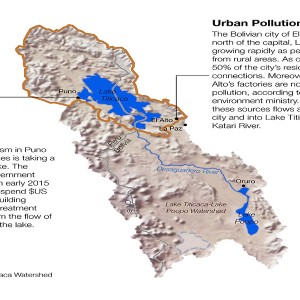The Stream, July 27: Climate Change Could Cost Investors $4.2 Trillion
The Global Rundown |
Climate change will likely be very costly for private investors, according to a new report. It is also an increasing threat to people in China’s coastal cities, a researcher said. Drought and disease are destroying olive crops in Spain and Italy, while recent rains could mean a record sugar crop in Thailand. The United Nations asked South Sudan to lift restrictions on aid shipped along the Nile River.
“People are increasingly living in the wrong places, and the demographic shift in China is enormous. China has a lot of old people who are vulnerable to extreme weather.”–Georgina Mace, a professor at University College London, on factors that she says will make people living in China’s coastal cities more vulnerable to extreme weather and sea level rise. (China Daily)
By The Numbers |
10 percent Increase in olive oil prices this year due to drought and an outbreak of a bacterial tree disease in Spain and Italy, respectively. Guardian
111 million metric tons Sugar cane harvest expected in Thailand, which would set a record. Recent rains in sugar-growing areas helped to restore plants stressed by drought. Bloomberg
Science, Studies, And Reports |
Private investors could lose $US 4.2 trillion by 2100 due to the effects of climate change on companies, according to a new report from the Economist Intelligence Unit. That estimate is for an increase in global temperatures of 2 degrees Celsius, but losses could be higher if temperatures become hotter. Guardian
On The Radar |
The United Nations asked South Sudan to lift restrictions on humanitarian aid shipped to the country along the Nile River, an important transportation route. The restrictions have been in place since June. Reuters
A news correspondent for Circle of Blue based out of Hawaii. She writes The Stream, Circle of Blue’s daily digest of international water news trends. Her interests include food security, ecology and the Great Lakes.
Contact Codi Kozacek





Leave a Reply
Want to join the discussion?Feel free to contribute!